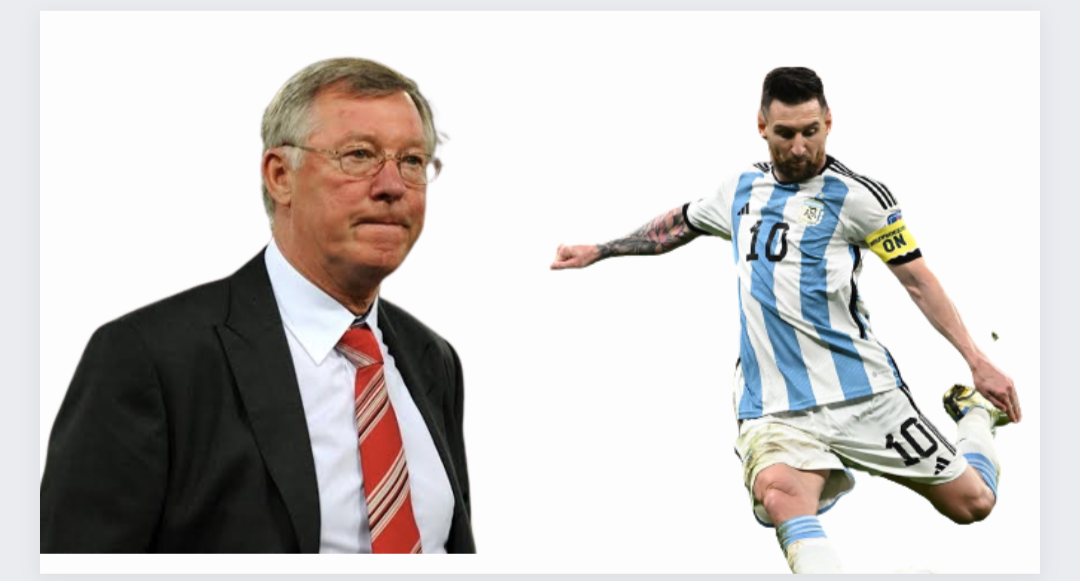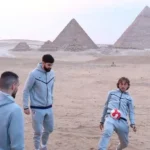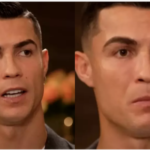Ferguson Favors Messi in Messi vs Maradona Debate
In the mesmerizing dance of football’s narrative, the eternal tango between Lionel Messi and Diego Maradona continues, a captivating tale with no foreseeable conclusion. Even with Messi’s recent conquest of the World Cup, his triumph in Qatar merely ignites fresh fervor in the timeless debate, leaving aficionados divided between the contemporary maestro and the legendary Maradona. It’s a symphony of conflicting opinions, a celebration of two footballing deities who have etched their stories into the annals of the beautiful game.
Messi, having ascended to claim his eighth Ballon d’Or, stands atop the pinnacle of individual footballing accolades. Yet, paradoxically, Maradona’s aura refuses to be eclipsed. He wasn’t just a player; he was a flawed genius, a magician with the ball, a celestial force whose impact extended beyond the realm of sports. Argentina fell in love not just with Maradona, the footballer, but with Diego, the man whose larger-than-life persona illuminated the pitch whenever he graced it.
The World Cup of 1986, forever etched in the footballing tapestry, is Maradona’s magnum opus. Regarded as one of the sport’s all-time great leaders, he is credited with single-handedly inspiring Argentina to glory in Mexico. The very claim, albeit somewhat unfair to his comrades in the 1986 World Cup-winning squad, attests to the mythical stature of Maradona’s influence. The legendary No. 10, a symbol of divine footballing prowess, navigated Argentina to triumph on the grandest stage.
Maradona’s brilliance wasn’t confined to international arenas. He transfigured Napoli, then an unfashionable club, leading them to their first two Serie A titles in 1987 and 1990—a feat that would take over three decades to repeat. Naples, the stage for his footballing theatrics, paid homage by renaming their stadium the Stadio Diego Armando Maradona, an everlasting tribute to a genius lost tragically at the age of 60 in November 2020.
Messi vs Maradona Debate
His legacy in Naples, however, isn’t confined to the renaming of a stadium. It lives in the hearts of fans, in the collective memory of a city forever enchanted by the magic he brought to the pitch. Maradona’s imagery adorns Napoli, a constant reminder of a time when football wasn’t just a sport; it was a celestial spectacle, and he was its brightest star.
In the aftermath of Maradona’s era, there arose a prevailing sentiment that such a unique talent would never grace the footballing stage again. Rising stars from Argentina were inevitably compared to the maestro, yet none could scale the heights he had defined. The world seemed resigned to the notion that an Argentine player might never reach the stratospheric bar set by Maradona in his playing days. Then, like a cosmic response to this yearning, Lionel Messi emerged in the mid-2000s, a comet of unparalleled brilliance.
Messi, a player who has dominated the footballing cosmos for nearly two decades, is often hailed as the greatest. With a record number of Ballon d’Or awards, he has woven moments of genius across his illustrious career with Barcelona, Argentina, Paris Saint-Germain, and now Inter Miami. His consistency, bordering on the supernatural, has seen him score over 800 goals for club and country, a tally that continues to rise despite the inevitable march of time.
Comparisons between Messi and Maradona extend beyond statistics. They delve into the realms of impact and silverware. Messi’s trophy-laden cabinet, adorned with numerous Champions League titles and league triumphs in both France and Spain, now boasts the coveted World Cup trophy. His influence spans the globe, leaving an indelible mark that mirrors the legacy of Maradona.
The narrative, however, isn’t complete without acknowledging the subjective nature of debates on footballing greatness. The Messi-Maradona discourse transcends statistics; it delves into the realms of personal bias and emotional connections. Their brilliance, though quantifiable in goals and trophies, is also immeasurable—an intangible essence that resonates differently with each admirer.
Ferguson Favors Messi
Enter Sir Alex Ferguson, a titan in the managerial realm, his perspective on the Messi-Maradona debate adding a layer of gravitas. Having observed both players’ careers closely, he lends his voice to the ongoing conversation. The revelation that the late, revered sportswriter Hugh McIlvanney firmly believed Maradona surpassed Messi sparked a spirited debate. Graeme Souness, a former midfielder-turned-pundit who faced Maradona on the field, disagreed vehemently, favoring Messi.
In the echoing corridors of this footballing discourse, Ferguson aligns with Souness, affirming Messi’s greatness. The rationale, according to Ferguson, lies in Messi’s sustained excellence over an extended period, contrasting with Maradona’s brilliance that burned brightly but fleetingly. Ferguson, a sage whose opinion commands respect, tips the scales in favor of Messi, acknowledging the enduring nature of his footballing prowess.
This endorsement from Ferguson, who has previously expressed his belief in Cristiano Ronaldo’s completeness over Messi, introduces a fascinating nuance to the discussion. It underscores the impact of longevity in shaping perceptions of footballing greatness. Ferguson, who faced off against Messi on the grandest stages, experienced firsthand the Argentine’s ability to orchestrate footballing symphonies, most notably in the 2011 Champions League final where Barcelona dismantled Manchester United.
The debate, despite Ferguson’s perspective, remains a tapestry woven with the threads of subjectivity. Football, at its core, is a visceral experience—a collision of passion, loyalty, and personal connections. The Messi-Maradona discourse, entrenched in the hearts of fans, continues to unfold on the grand stage of collective memory.
Regardless of the eventual resolution, one undeniable truth emerges—the pair, Messi and Maradona, collectively represent two of the greatest footballers to grace the beautiful game. Their journeys, distinct yet intertwined in the narrative of Argentine football, resonate across eras, leaving an indelible mark that transcends statistics and trophies.
As the echoes of this ageless debate reverberate through stadiums and conversations, one can’t help but marvel at the privilege of witnessing two footballing titans in the same lineage. Their stories, written in the ink of goals, victories, and indomitable spirit, form chapters in a book that stretches beyond the confines of time. If, perchance, another prodigy emerges to challenge their legacy, it would only add another enchanting layer to the ever-evolving tale of football’s greatest magicians.










